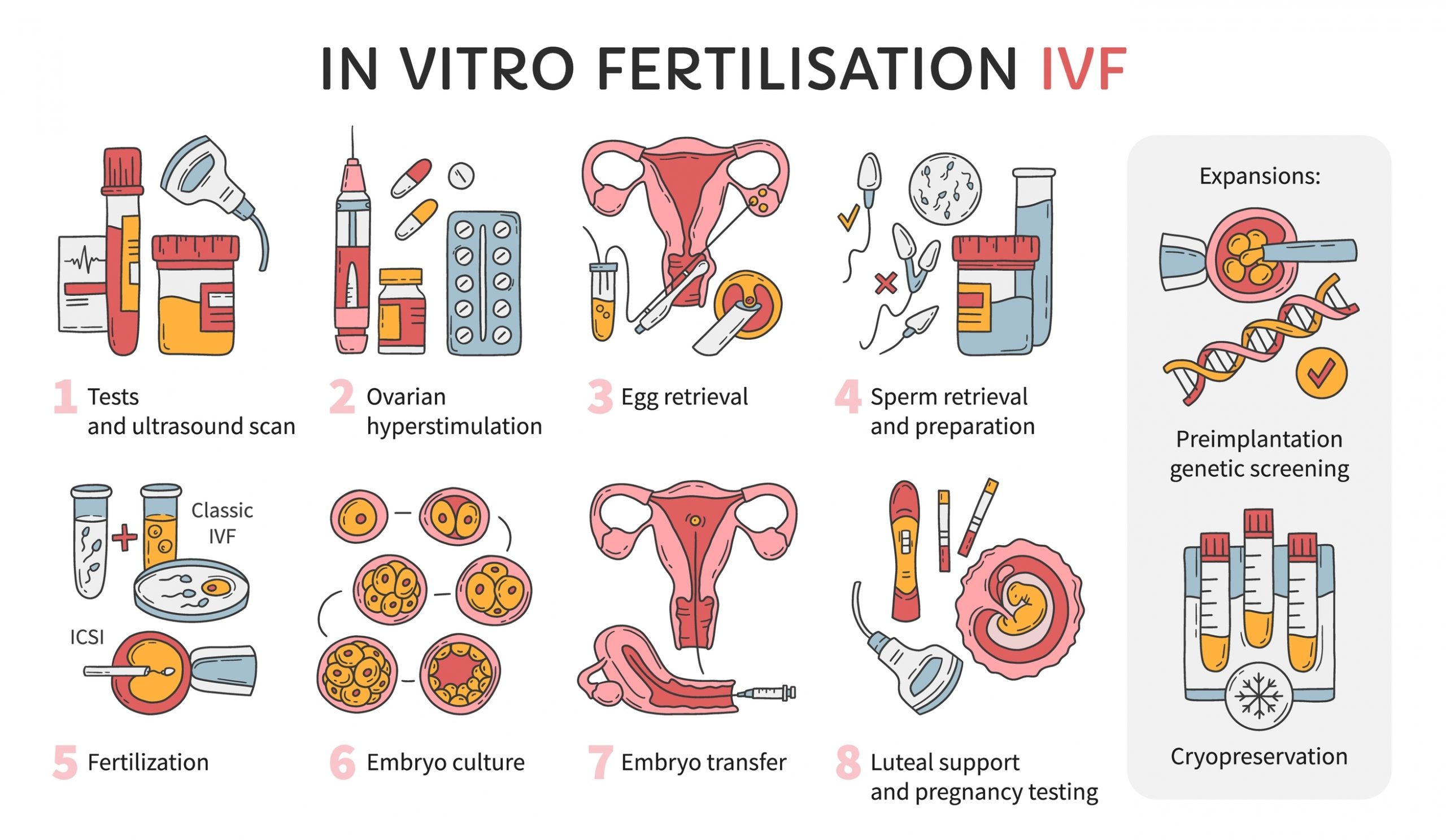Introduction
In vitro fertilization (IVF) represents a beacon of hope for many men and women and couples grappling with infertility. About the earlier several many years, improvements in reproductive technological know-how have not only improved the odds of conception but also opened the door to a innovative method: preimplantation genetic diagnosis (PGD). PGD enables for the genetic screening of embryos ahead of they are implanted in the uterus, making sure that only embryos with out identified genetic issues or abnormalities are picked for pregnancy. As we navigate through the twenty first century, PGD stands at the forefront of reproductive medicine, heralding a new period of genetic screening that guarantees to reshape the upcoming of IVF.
The Evolution of IVF and Genetic Screening
IVF has been through a radical transformation because the start of Louise Brown, the world’s 1st “examination-tube newborn,” in 1978. Early IVF methods ended up marred by reduced achievement costs and confined knowledge of embryonic advancement. The introduction of genetic screening was a sport-changer, enabling embryologists to look at the genetic make-up of embryos and decide on these with the greatest opportunity for a wholesome pregnancy.
The Progress of Preimplantation Genetic Prognosis
PGD is a specialized procedure that requires removing one particular or extra cells from an IVF embryo to exam for particular genetic ailments before the embryo is transferred to the uterus. Initially produced to monitor for intercourse-joined disorders, PGD has expanded to include things like a broad array of genetic and chromosomal abnormalities.
Knowledge the Genetic Screening Method
The system of PGD begins with the regular IVF cycle, wherever eggs are harvested and fertilized in the lab. The moment the embryos get to the blastocyst stage, a several cells are biopsied and analyzed making use of 1 of several genetic screening solutions, this sort of as polymerase chain response (PCR) or subsequent-generation sequencing (NGS). These approaches allow for for the detection of single-gene diseases, chromosomal abnormalities, and even the opportunity for inherited most cancers syndromes.
visit of Genetic Screening
As with a lot of advances in biotechnology, PGD brings with it a host of ethical considerations. The potential to pick out embryos dependent on genetic standards has sparked debate about the thought of “designer infants” and elevated problems about eugenics. Ethicists and medical pros proceed to grapple with these difficulties, striving to come across a harmony concerning the rewards of genetic screening and the moral implications of genetic variety.
The Effects of PGD on Genetic Disorders
PGD has experienced a profound impact on the prevention of genetic diseases. People with histories of heritable ailments like cystic fibrosis, Tay-Sachs condition, or Huntington’s condition now have the selection to bear small children devoid of the fear of passing these circumstances on. This has not only lowered the incidence of selected genetic issues but also alleviated the emotional and financial stress on households and healthcare devices.
Progress and Improvements in PGD
The area of PGD is continually evolving, with new technologies enhancing its precision and scope. The arrival of comprehensive chromosomal screening (CCS) allows for the investigation of all 23 pairs of chromosomes, making sure that only embryos with the appropriate number of chromosomes are implanted. This has drastically lowered the danger of miscarriages and improved the accomplishment costs of IVF.
The Part of PGD in Spouse and children Balancing and Gender Selection
One of the extra controversial aspects of PGD is its use in loved ones balancing and gender variety. Some argue that the capacity to opt for the intercourse of one’s boy or girl is a pure extension of reproductive liberty, when some others get worried about the social and demographic repercussions of these types of choices. Nevertheless, in conditions in which gender-unique genetic problems are a worry, gender variety stays a very important factor of PGD.
The Future of PGD: Expanding the Choices
As we glance to the future, PGD is poised to broaden in abilities. Research into polygenic risk scores could empower PGD to display screen for sophisticated conditions like coronary heart condition or diabetic issues, which are affected by numerous genes. There is also the potential to use PGD in conjunction with gene modifying technologies like CRISPR, to not only pick out but also right embryos at the genetic stage, despite the fact that this remains ethically and lawfully contentious.
Legal and Regulatory Issues
The regulation of PGD varies noticeably all around the planet, with some countries embracing the technological innovation and other folks imposing stringent constraints. As the science progresses, policymakers will be challenged to generate frameworks that guarantee ethical apps of PGD although supporting scientific progression.
Summary
Preimplantation genetic prognosis stands at the intersection of genetics, medication, and ethics, giving unparalleled handle around the genetic well being of long run generations. Its integration with IVF has already enhanced the prospective clients of would-be mothers and fathers to have healthy little ones and guarantees to continue on its trajectory of innovation in the realm of reproductive well being. As we advance, it is imperative that we contemplate the ethical implications and legal frameworks essential to tutorial the responsible use of this effective technologies. The long term of PGD in IVF is not just about the science of genetics, but also about the values we as a modern society choose to uphold
